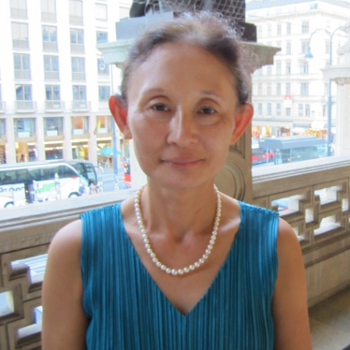Salzburg in the summer turns into Vienna West, with the Vienna Philharmonic taking up residence during the Festival, and a major part of the audience coming from Vienna and the rest of Austria, as well as Germany. So it is perhaps inevitable that Harry Kupfer's new production of that most Viennese of operas, Der Rosenkavalier, pays homage to the lost glory of Vienna, in this case of 1920s rather than the original setting of 1740s.
Videos are liberally used as backdrop throughout with scenery of Viennese monuments, buildings, museums and parks, as the three acts of “Viennese masquerade” take place in a fancy boudoir of the Marschallin with huge mirrors in Act I, in an Albertina-like outdoor space transforming into a butterfly house and then a museum room representing Faninal’s palace in Act II, and finally into an inn located in the Prater for Act III. It is a visually pleasing – and at times stunning – if unimaginative setting to enjoy the Vienna Philharmonic under its musical director, Franz Welser-Most, plays music that seems to be in their DNA.
The stage of the Grosses Festspielhaus is quite expansive, which sometimes works to an advantage of the opera, for instance in Act II as the two Italians conspire with Octavian clearly out of earshot of Baron Ochs. The Act III interaction between the Marschallin, Octavian and Sophie just before their trio can be an awkward directorial moment, but a long stage affords sufficient space between the Marschallin and Sophie for Octavian to move back and forth as he attempts to reconcile his loyalties to the two women. Part of the stage is on a part-turntable so stage props and singers can move efficiently and smoothly to change the angles of the room and even scenes within an act. This was especially cleverly accomplished in Act II. At other times, the stage seems just too large for the intimacy needed for the opera, as in the inn scene with Octavian and Ochs.
Krassimira Stoyanova was making a role debut as the Marschallin. Her rich and sometimes dark soprano is a perfect vehicle for the mature woman of society and rank, and her elegant vocalism and technique are impressive as she makes her first attempt in the role. The Marschallin’s Act I monologue sets the tone for the rest of the opera, and while Stoyanova may not erase memories of other distinguished sopranos who have sung the role with distinction, she makes a significant first step towards making the role her own. Her acting shows her authority and dignity throughout.
Sophie Koch sang the role of Octavian for three performances in Salzburg in 2004, the last time the opera was performed here. Her experience in the role clearly shows, and she sang and acted with confidence throughout. Her high notes are especially distinct, as they are effortlessly produced in a somewhat covered way. Her acting of a valiant if somewhat naive young count, as well as that of the servant girl “Mariandel” was both credible and natural.
Günther Groissböck, making an important role debut as Baron Ochs, was unfortunately announced to be suffering from a cold. His usually booming and strong voice was clearly compromised, but he nevertheless made a strong impression as an excellent Ochs at his first attempt. Der Rosenkavalier in Salzburg is presented without the usual cuts, so Ochs has more to sing in Act I as he describes his romantic exploits in more detail to Marschallin and Octavian (disguised as Mariandel). This delineates Ochs’ character more clearly as a consummate womanizer, a little like Leporello’s catalogue aria from Don Giovanni. Strauss was a great admirer of Mozart, and along with the Marschallin and Octavian’s breakfast scene and the final duet of Octavian and Sophie, Strauss’ subtle tribute to Mozart’s light hearted music is clear here. Groissböck played Ochs not so much as a middle-aged fat country bumpkin, but as a young virile man hungry for fun and excitement. His final defeat in Act III, “Leupold, wir gehn” was sung not so much with the usual defiance but with more grief and disappointment.
Mojca Erdmann's Sophie cuts a strikingly tall and beautiful figure with her blond hair, fair features and flattering costumes. Her singing, unfortunately, was not quite at the level of her colleagues this evening, as she was not always audible, especially in ensemble, despite a visible effort by the conductor to accommodate her and Groissbock by lowering the volume of the orchestra. Erdmann’s soprano failed to soar in the final trio, and was otherwise thin, lacking the brilliance and sheen necessary for the role.
Adrian Erod was an unusually youthful and excellent Faninal, and made the small role into something substantial and interesting. His bright, clear baritone carried easily over the orchestra. Wiebke Lehmkuhl left a good impression as a well-sung and acted Annina.
The last trio and duet takes place not in the country inn, but in the Prater with two benches on stage and a backdrop of tall trees in the mist on the screen. The lack of other props focuses one’s attention squarely to the glorious music and female voices, and this scene was a major highlight of the production. The quartet of the Marschallin, Faninal, Sophie and Octavian all leave the stage in a white open car driven by a chauffeur dressed in white. The chauffeur returns to retrieve the handkerchief and lingers on stage in front of the Marschallin’s bedroom door that reappears, suggesting perhaps her next relationship – a witty end to this staging.




